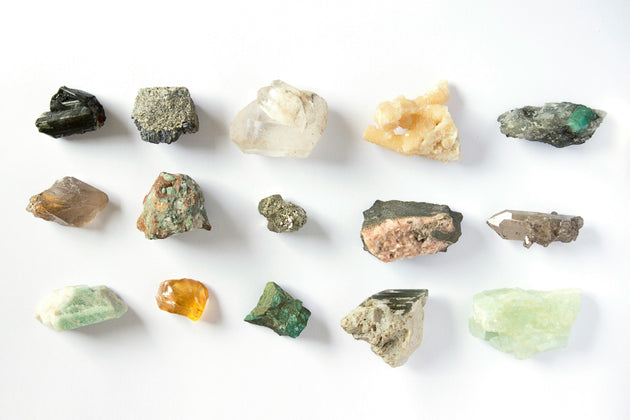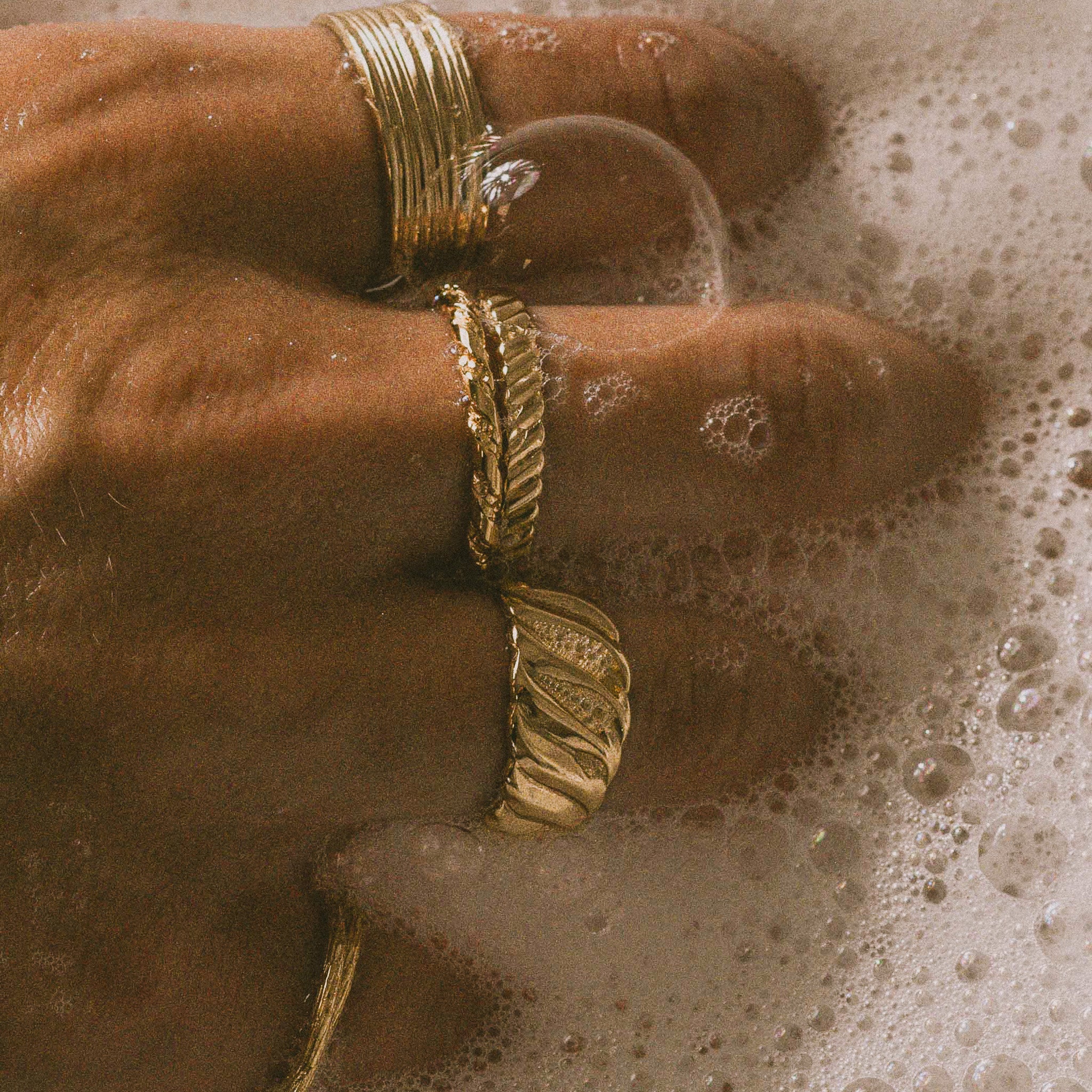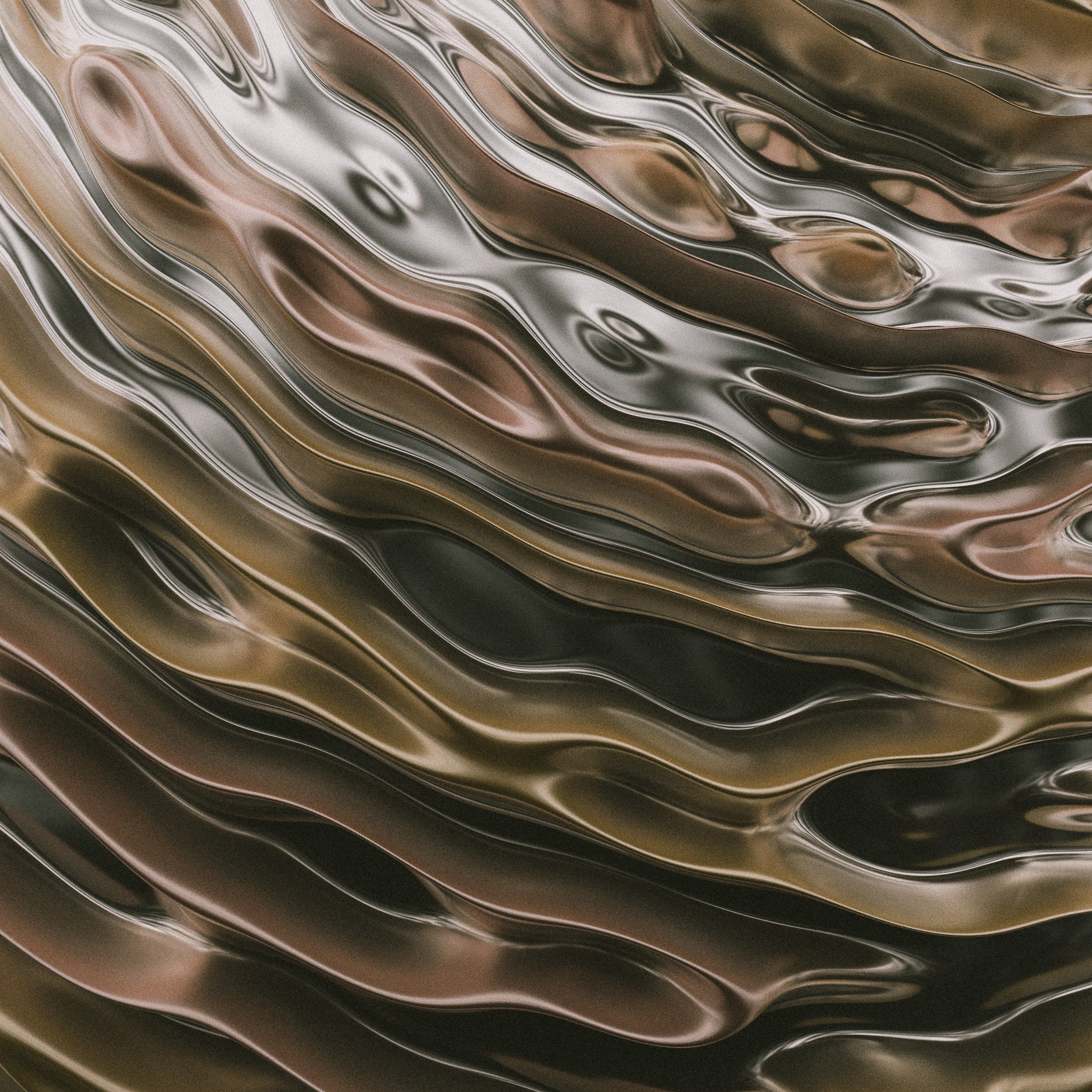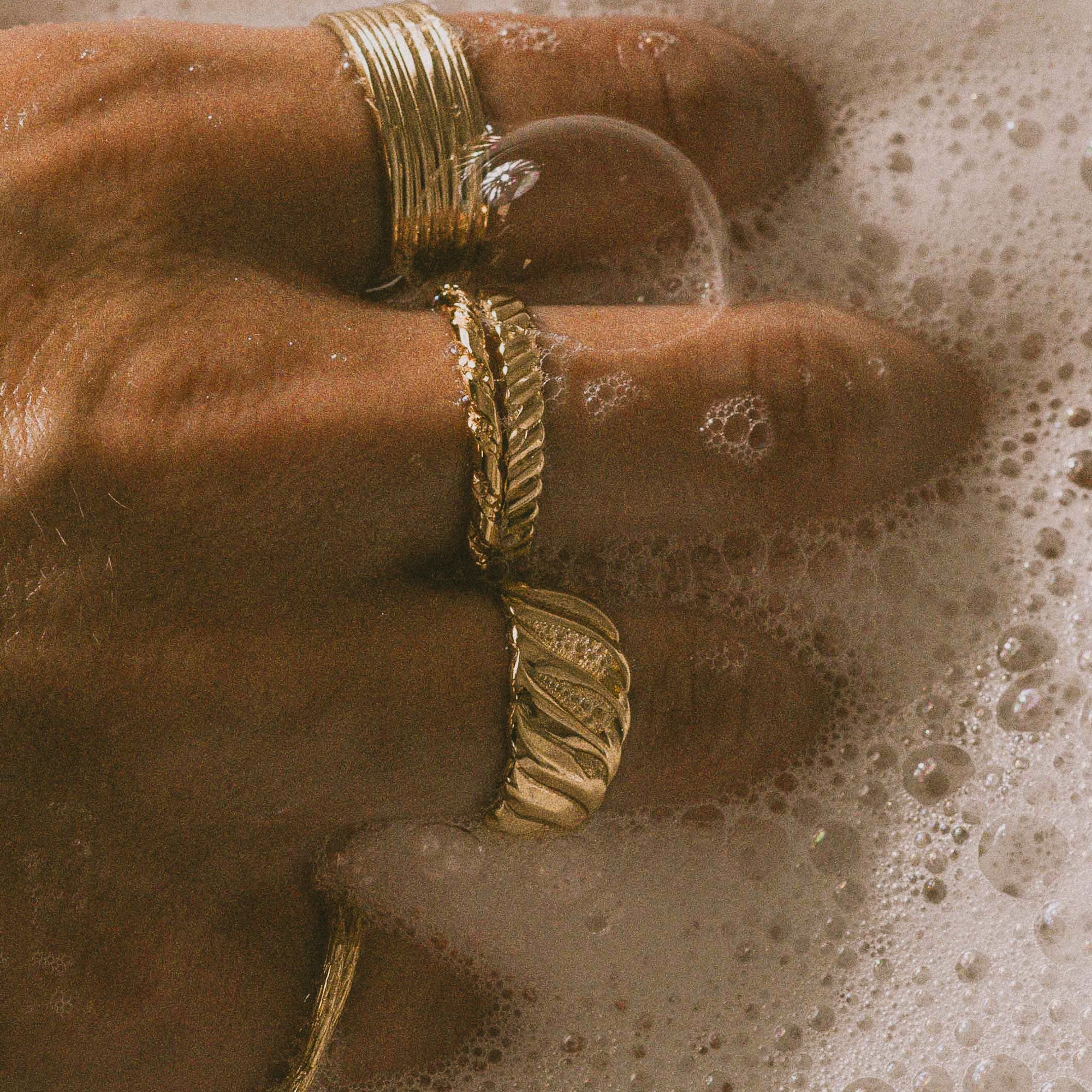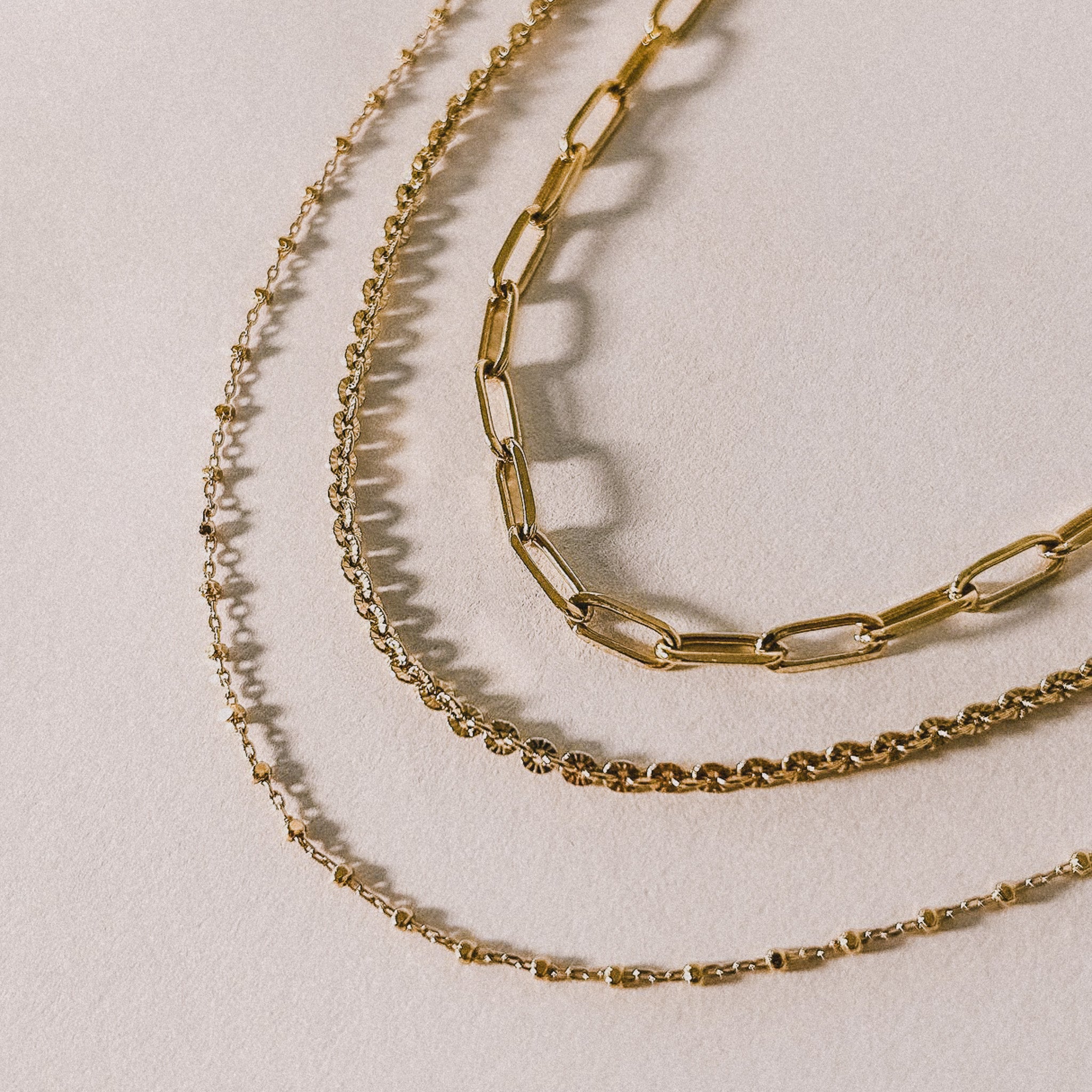Jewelry is much more than just an accessory; it reflects our personal histories, marks our most precious moments and, often, is an heirloom of great sentimental and financial value. However, to ensure they retain their beauty and integrity over time, proper care is essential. Whether you own an heirloom, a special gift, or have invested in a piece of jewelry that's close to your heart, caring for your treasures can seem daunting. This ultimate guide aims to demystify jewelry care, offering you practical, easy-to-follow tips for preserving their brilliance every day.
Understanding Your Jewelry Materials
Before diving into care practices, it's crucial to understand the materials that make up your jewelry. Each metal and stone has unique properties that influence how they should be cared for. This knowledge will help you adapt your approach to care to ensure the longevity of each piece.
Metal characteristics and their impact on cleaning
Metals used in jewelry vary in hardness and chemical reactivity, which affects their susceptibility to tarnishing, corrosion and scratching. Cleaning metal jewelry requires an approach adapted to its specific composition to avoid damage while restoring its brilliance.
Types of natural stone and how to care for them
Natural stones, with their varying degrees of hardness and porosity, require delicate cleaning to avoid compromising their integrity. Some stones can be sensitive to acidic or alkaline cleaning solutions, as well as to temperature variations.
Recognizing and respecting the particularities of each material is crucial to safe and effective jewelry cleaning. By avoiding inappropriate cleaning methods, you prevent the risk of damage and ensure that your jewels remain radiant. Whether it's using gentle solutions to clean delicate metals or specific techniques for natural stones, every piece of jewelry deserves special attention.
The key to successful cleaning lies in gentleness and precision. By adopting cleaning methods that respect the unique characteristics of your jewels, you contribute not only to their longevity, but also to their ability to illuminate every day of your life with their unaltered brilliance.
Jewelry accompanies us through life, capturing and reflecting the light of our most cherished experiences. By giving them the cleaning and care they deserve, we honor not only their material beauty, but also the depth of the bonds they symbolize.
Basic principles of jewelry cleaning
Maintaining the brilliance and durability of your jewelry requires a methodical, preventive approach. By adopting basic principles for cleaning your jewelry, you can ensure its preservation for years to come. Here are some essential guidelines to incorporate into your care routine.
Regular cleaning
Regular cleaning is crucial to avoid the build-up of residues and substances that can tarnish or damage your jewelry. The frequency of cleaning depends on how often you wear each piece and its exposure to potentially harmful elements.
Opt for gentle cleaning solutions, such as warm soapy water and a soft bristle brush, to remove dirt without risking damage to the jewelry. For more delicate jewels, a simple, soft, dry cloth may be all that's needed to restore their shine.
Proper storage
Proper storage is just as important as cleaning. Proper storage prevents scratches, tangles and shock damage.
Keep your jewelry separate to avoid scratching each other. Use jewelry boxes with individual compartments or soft fabric pouches for each piece.
Make sure the place where you store your jewelry is dry and away from humidity, which can accelerate the tarnishing of certain metals.
Beware of Exposure
Jewelry can be sensitive to a variety of substances and environmental conditions. Being aware of these factors and avoiding them can greatly contribute to the longevity of your favorite pieces.
Water exposure
Exposure to water, especially chlorinated or salty water, can significantly affect your jewelry. Not only can water tarnish precious metals, it can also weaken or dissolve certain adhesives used in jewelry. What's more, water can penetrate porous stones, reducing their brilliance and causing internal damage. To protect your jewelry, we recommend removing it before bathing, showering or washing up.
Chemical products
Avoid contact with chemicals found in perfumes, lotions and cleaning products, which can tarnish or corrode metals and damage stones.
Prolonged exposure to sunlight
Sunlight can affect the color of some stones. Limit direct exposure to the sun for jewelry encrusted with sensitive stones.
By incorporating these basic principles into your routine, you'll be taking proactive steps to maintain the brilliance and health of your jewelry. Regular cleaning, careful storage and attention to display are pillars that ensure your jewelry can be worn and enjoyed for many years to come. Every piece of jewelry is an investment in beauty and memories: treating it with care is a way of cherishing these precious values.
DIY Jewellery Cleaning Techniques
Cleaning your jewelry doesn't have to be complicated or expensive. With a few simple tools and ingredients, you can achieve safe, effective cleaning at home. Here are some DIY (Do It Yourself) techniques to restore your jewelry's shine and sparkle, using products you probably already have at home.
Home Cleaning Solutions
-
Warm water and mild soap
This method is ideal for most jewelry. Mix lukewarm water with a few drops of mild soap (such as Castile soap or mild dishwashing soap). Soak your jewelry for a few minutes, then use a soft-bristled toothbrush to gently clean. Rinse with lukewarm water and dry with a soft, clean cloth.
01 -
Baking soda and water
For silver jewelry that is beginning to tarnish, create a paste with baking soda and water. Gently apply to the silver with a soft cloth or sponge, then rinse and dry. Avoid this method for jewelry containing delicate stones, as bicarbonate can be too abrasive.
02 -
White vinegar and water
To clean gold and gold-plated jewelry, mix one part white vinegar with two parts water and leave your jewelry to soak for 10-15 minutes. Rinse thoroughly and dry. Avoid this method for jewelry with precious stones, as the acidity of vinegar can damage some stones.
03
Polishing and shining
After careful cleaning, restoring the lustre of your jewels through polishing and buffing is essential to maintain their shine.
A soft cloth, such as a microfiber cloth or one specially designed for jewelry polishing, is ideal for reviving your pieces. These cloths gently remove accumulated dirt and surface residues, while polishing the surface without scratching.
If necessary, a mild cleaning solution can be applied to the cloth before polishing. Make sure the solution is suitable for the type of jewel and rinse well after application to avoid any residue.
Please note that jewelry containing more delicate elements, such as natural stones or fine details, must be handled with care. In these cases, polishing concentrates mainly on the metal parts and avoids areas where stones are set.
These simple polishing and buffing techniques keep your jewelry looking new and shiny with minimal effort. By incorporating these steps into your care routine after each cleaning, you'll extend the life of your jewelry and ensure that it continues to sparkle and embellish your moments.
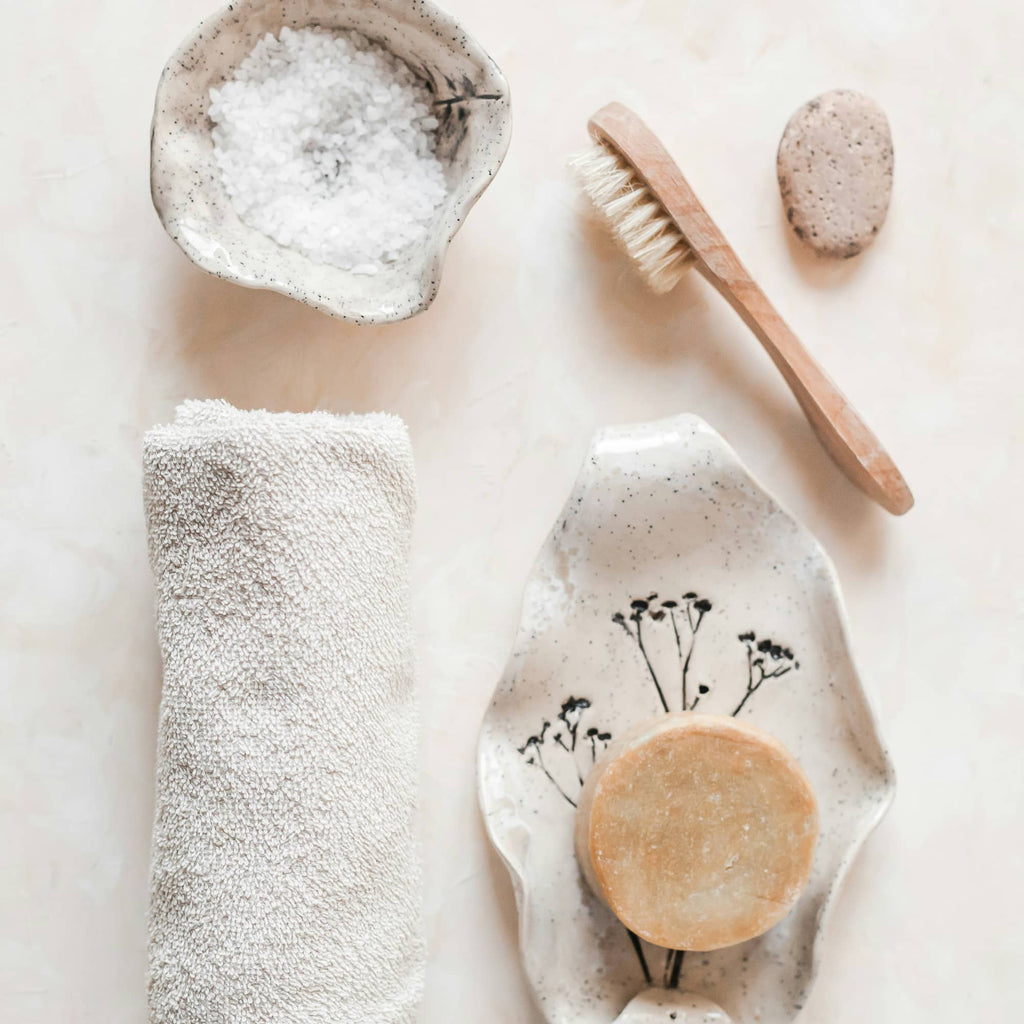
These DIY cleaning techniques are not only economical but also environmentally friendly, allowing you to care for your jewelry without resorting to harsh chemicals. Nevertheless, it's important to always proceed with caution, taking into account the specific materials of your jewelry and avoiding cleaning methods that could damage them. Regular, gentle cleaning is the key to maintaining the beauty and integrity of your precious pieces.
Everyday Jewellery Care
To ensure that your jewelry retains its beauty and brilliance day after day, it's essential to adopt daily care habits. These simple but effective gestures can make all the difference in preserving the quality of your favorite pieces. Here's how to make jewelry care part of your daily routine.
Wearing jewelry and daily activities
To avoid damage, remove your jewelry during physical activities, manual labor, or any other task that may expose it to shocks, chemicals, or excessive perspiration. This includes sports, gardening and even some household chores.
Beware of water and chemicals! Water, especially chlorinated pool water or salt water, can be harmful to jewelry. Chemicals in perfumes, lotions and cleaning products can also alter metals and stones. Apply your cosmetics before putting on your jewelry, and remove them before bathing or cleaning.
Season-specific care
Protection from sun and heat
During the summer months, protect your jewelry from prolonged exposure to the sun, which can tarnish certain metals and alter the color of certain stones. Excessive heat can also damage jewels, especially those with glue or temperature-sensitive materials.
Humidity and winter care
Winter brings its own challenges, particularly in terms of humidity and temperature variations, which can cause condensation on jewelry and ultimately contribute to its deterioration. Keep your jewelry dry and protected from extreme temperature fluctuations.
By adopting these daily care practices, you ensure that your jewelry not only remains clean and shiny, but also in good condition. Taking care of your jewelry is an investment in its beauty and meaning, allowing you to wear it with pride and joy for years to come.
When to consult a professional?
While many aspects of jewelry care can be managed at home with gentle cleaning techniques and daily care, some situations require the expertise of a professional. Knowing when to entrust your jewelry to a specialist is crucial to preserving its integrity and brilliance. Here are just some of the circumstances in which consulting a professional is essential.
Professional repair and cleaning
If your jewelry shows signs of damage such as deep scratches, loose or missing stones, or deformations, it's time to take it to a professional. DIY repair attempts can often make problems worse.
Some precious and semi-precious stones, especially those that are porous or treated, require specific cleaning methods that only a professional can provide without risking damage to the stone.
The benefits of Professional Consultation
Jewelers and jewelry restoration specialists have the expertise and equipment to accurately assess and repair jewelry, guaranteeing high-quality results.
A professional examination can identify and resolve potential problems before they become serious, such as weak clasps or worn prongs that can lead to stone loss.
A professional can also offer personalized advice on the best way to care for your specific jewelry, taking into account its age, style and material composition.
How to choose the right professional?
Choose a reputable professional, ideally recommended by friends or family, or rated online. Don't hesitate to ask for examples of their work or references. Make sure that the professional you choose has experience with the specific type of jewelry or stones you wish to have cleaned or repaired.
Consulting a professional to care for your jewelry is an investment that can be well worth making to improve the longevity of your jewelry. Whether it's for a delicate repair, a thorough cleaning, or simply a routine check-up, a specialist can provide you with peace of mind, knowing that your precious treasures are in safe hands.
Keeping your jewelry in good condition is crucial to its durability and appearance. By incorporating simple cleaning routines, using effective home cleaning methods, and calling in the professionals when necessary, you can ensure that your jewelry remains in excellent condition. Good jewelry care is the key to keeping these precious pieces ready to be worn and enjoyed for a long time to come.


